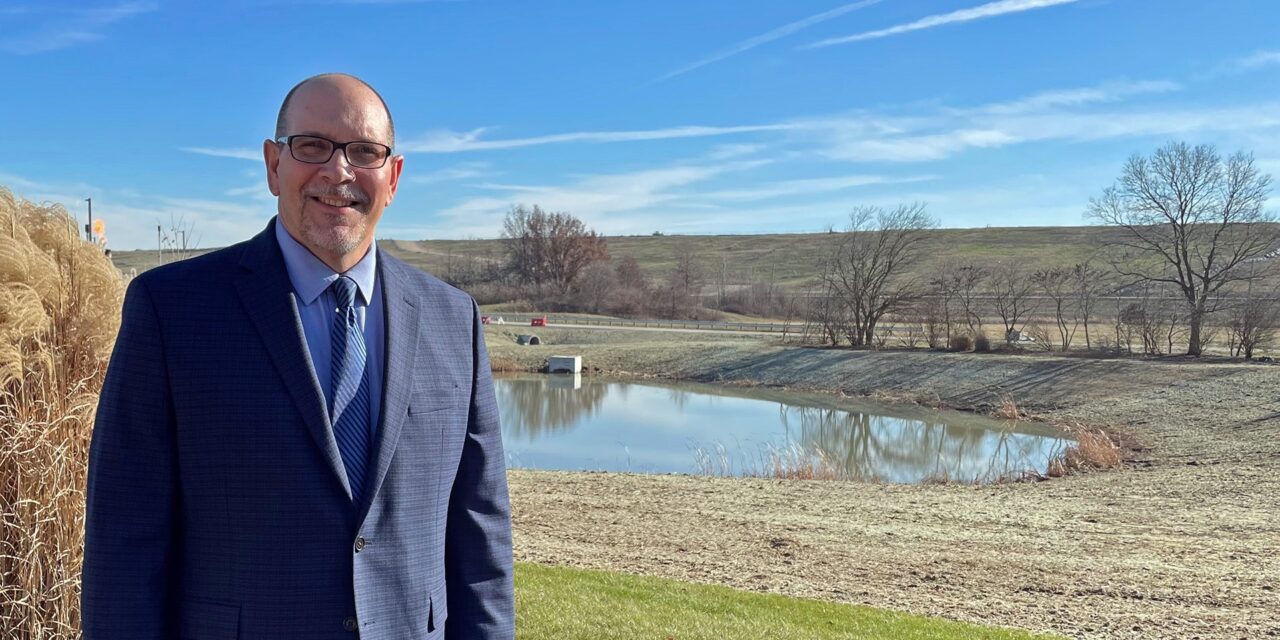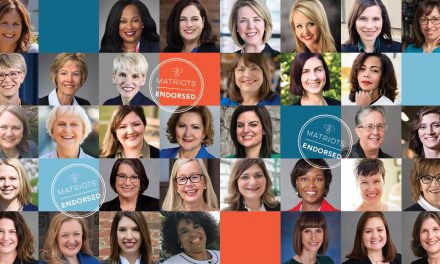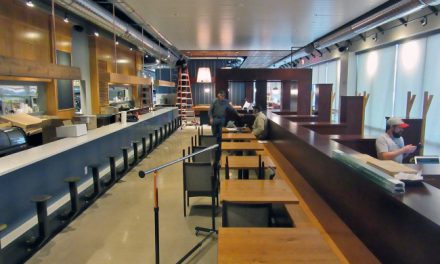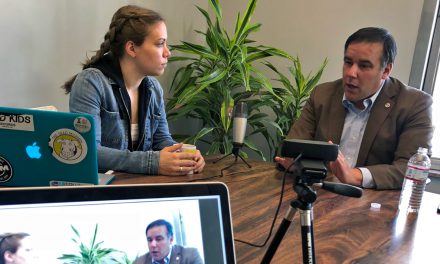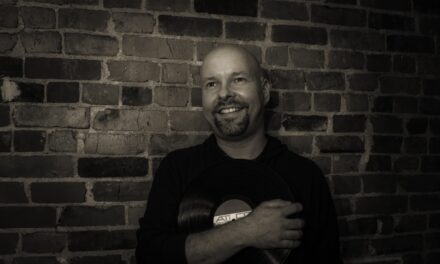Podcast: Play in new window | Download
Subscribe: RSS
Tim Fulton 00:08
Welcome to the confluence cast presented by Columbus underground. We are a weekly Columbus centric podcast focusing on the civics, lifestyle, entertainment, and people of our city. I’m your host Tim Fulton. This week, we are taking out the trash. Columbus underground co founder Walker Evans sat down with Joe Lombardi, the executive director of the Solid Waste Authority of Central Ohio or SWACO. They discuss the strategies they are putting in place for a sustainable future practical tips on reducing waste and ways to celebrate sustainably this holiday season. You can get more information on what we discussed today in the show notes for this episode of The confluence cast.com. This episode of the confluence cast is brought to you with support from SWACO SWACO is Central Ohio source for waste reduction, recycling and composting information. To learn more visit swaco.org. Enjoy the interview.
Walker Evans 01:12
Sitting down here today with Joe Lombardi, the executive director of SWACO. Joe, thanks for sitting down with us today.
Joe Lombardi 01:17
Thanks for having me. This is a great opportunity. Yeah,
Walker Evans 01:20
so SWACO Solid Waste Authority of Central Ohio. That’s correct. For the acronyms. For anyone unfamiliar, I’m sure everyone’s seen the word SWACO you know, on a on a recycling bin or a dumpster, you know, some somewhere in the city. Ken, can you tell us what is Waco? What what does it do? Who is Waco?
Joe Lombardi 01:36
Sure SWACO was created in the 80s as part of a house bill 592 out of the state of Ohio, which created 52 Solid Waste districts throughout Ohio. We are one of those 52. We take care of all the waste management. We own the landfill here in central Ohio, we are responsible for 41 communities. We also provide programs, resources, education, grants, to help other communities in their waste reduction and recycling efforts.
Walker Evans 02:15
Nice what what what did what existed before SWACO was every community kind of individually handling this sort of stuff, each suburb in each city. And
Joe Lombardi 02:24
they we called them dumps back then. And so every industry, every organization was different. And so state of Ohio to combat a lot of out of state trash that was coming into Ohio, and to safely dispose of that waste created solid waste districts with the really the goal was to stop the reliance on landfills and create programs to divert that material away from landfills. Yeah,
Walker Evans 02:57
yeah. So anyone watching the YouTube or the video version of this can maybe see behind us the large mountain in the background, which I believe is Central Ohio’s largest.
Joe Lombardi 03:06
It is. It is it is point it is the tallest point in central Ohio.
Walker Evans 03:11
Does it have an official name? And people kind of say, you know, it’s it’s mount some
Joe Lombardi 03:15
Trump mounts? Right go? Yeah, so there’s always some kind of funny nicknames.
Walker Evans 03:21
Yeah. Which tell us a little bit about this, you know, because anyone driving down 71, if they’re headed down towards Cincinnati kind of sees it in passing. But I imagine a lot of people have been up there on a tour,
Joe Lombardi 03:33
right. And we do give tours of if folks are interested. Oh, that’s a great tour. It’s fun. There’s a lot more engineering to it than you think there is. There’s a lot to it. So we bring in about a million tonnes a year with our 41 communities. It is what we call a sanitary landfill. So it is permitted through the Ohio EPA, there are regulations that we must conform to to make sure that it is safe for our environment, say for our community. And being in an urban setting is is a challenge most most landfills are not in an urban setting like we are. Yeah. But we are probably one of the best run landfills in central Ohio. And we’re kind of a model to other landfills throughout the state.
Walker Evans 04:17
Nice. Yeah, I would just recommend if people are going to tour ago in the colder months, because it doesn’t have as much of a strong smell you
Joe Lombardi 04:24
might not get as a smell. It’s relatively for a big mountain of waste is relatively not that much smell once you get up there. Yeah, it’s pretty incredible. What are men and women do each day to keep that odor down?
Walker Evans 04:39
Nice. So the the landfill is one component of what SWACO does. I want to talk about recycling as well, because obviously that’s that’s kind of the biggest component what what is the goal and I guess the role of SWACO when it comes to recycling? Yeah,
Joe Lombardi 04:51
so as we mentioned earlier, one of the goals for us is to burn as much material away from that landfill to extend the life of it. It’s very are just site a landfill in anywhere. So we want to extend the life by getting products out of that out of the landfill. So we have a robust programs section that does education we have recycled right is a campaign that we do to educate and make folks aware of how to recycle, what to recycle what can be recycled. One of the interesting things is we did a waste characterization study in 2018. And that study showed us that 76% of what’s coming into that landfill can be reused, recycled or repurposed. So 76% of what you see out there, yeah, doesn’t need to be in there. It can be it can be recycled. So our goal is to make our communities aware, right, to educate them to give them grants to help with their program. Yeah,
Walker Evans 05:53
yeah, I know, there’s always a lot of confusion between plastic types, and the numbers on the labels is a yogurt container recyclable and all that sort of stuff. So yeah, great. Great to see a lot of that consumer information out there. You know, a lot of times we focus on that one our the the recycle part of the three R’s. Reduce and reuse being being big components as well. Do you think there are things we need to be doing better in central Ohio to kind of eliminate, you know, the use of single use plastics and things like that? Yeah,
Joe Lombardi 06:22
I think that’s very important. A lot of people understand the recycling side the reuse and repurpose is really the thing that we’re going to try to start focusing on in 2024. For example, you know, food is a big material that comes in our landfill represents 15% of what comes in, it’s our largest material that we can divert out of there, you know, you could compost and food waste. And, and even before that, to reduce how much food that you bring to your households, make a grocery list for the week. Each year leftovers freezed up that can be frozen and reused. We just opened up convenience center about a month ago, where we’re accepting bicycles and old oil appliances, things of that nature. And when you take a bicycle, and there’s a group that’s going to redo them and refix them and renovate them up and give them back to children that can’t afford a bicycle. So not only are we able to get that bicycle back in into our community, but we’re giving it to people that
Walker Evans 07:30
need that’s awesome. Yeah, where’s the center located?
Joe Lombardi 07:33
Center is located on Jackson pike. Right at our transfer station on Jackson pike will be open Monday through Friday from I think it’s 930 to six and then on to our 1036 and then on the weekends 930 to four on Saturday.
Walker Evans 07:51
Nice. Yeah, I know there’s a lot of great opportunities throughout the year as well for like E waste, you know, sites that will pick up and help people recycle things like that and batteries, things that are just harder to determine, you know, should this go in the trash at this gone recycling? You know, it was harder things. I know that there’s also some new composting drop off locations in the city as well.
Joe Lombardi 08:12
Yeah, so the City of Columbus just instituted I believe they have three food waste drop offs at some of the recreation centers. Our new convenience center will allow for food drop offs, and we’re in the process right now of adding more food waste drop offs. Also, some of our communities have curbside Bexley, one of one of our probably our most aggressive communities in sustainability has a curbside drop off program. Upper Arlington Hilliard, so they’re all starting to get into food waste drop offs. I believe Granby has a good sized one right at the bottom of the hill on good ale and gravy Avenue. Yeah, folks can just take their food waste and put them in bins and company comes and picks mountain and compost, is it nice. So
Walker Evans 09:01
we are about to head into the holidays. Which is a big time of year for for celebration for parties or traveled for gift giving. I imagine you see an uptick in waste and recycling and all this sort of stuff. Are there educational campaigns or guidelines you try and get out in the community to help with some of
Joe Lombardi 09:22
that? Absolutely. According to the Ohio EPA 25% more trash comes in during the holiday really. You’re wrapping papers or cardboard boxes. Food waste, obviously, for the holidays. And so we put out a green holiday guide if you visit our website swaco.org. It will give you some tips on how to be more sustainable during the holidays. One of the things we talked about is donate some of your old decorations and maybe your old lights you can bring it to a convenience center and drop them off. We also talk about break Come down your cardboard boxes that your new TV is coming in. And this Styrofoam, now we’re accepting at that convenience center. So you could bring your styrofoam there and drop it off instead of putting it into your way. So I would I would tell people that are listening to go to swaco.org and look for the holiday guide, and it will give them all the tips that they need to be more sustainable. Yeah,
Walker Evans 10:24
keep those Christmas trees and Christmas trees out. That’s right. That’s right. Yes, don’t belong there. Obviously big time for food waste as well, you know, a lot of holiday cooking parties, all that sort of stuff. So that’s that’s some great information to learn about. As we head into 2024, and I, you talked a little bit about some some of the goals. Are there other programs or initiatives that you’re working on for next year? Yeah,
Joe Lombardi 10:47
so just this week, our board passed our 2024 budget and our new strategic plan for the next four years with a new vision, our new vision is to make this a sustainable future for our region. And our mission is changed a little bit, we want to have transformational programs and safe, you know, waste disposal. So we’re pretty excited about this new strategic plan, we’re going to be looking at adding additional funding for grants to provide to our communities for waste reduction, we’re really going to hit our businesses, our commercial businesses are about 60% of what comes in our landfill. So we’re working on a business recycling program, trying to get that program moving. So we’re going to add additional staff to that. I’m a big proponent of education. I think our kids are great ambassadors for recycling and sustainability. And that’s why we change our vision as a sustainable region for the future. Because they are the future and we need to give them a better place to live. And so we’re going to hit the schools, we’re going to we’re going to try to get to the young people, especially in elementary and middle schools, and keep making them aware. And then they come home and make us aware of when we do things wrong. I mean,
Walker Evans 12:07
it’s their their planet in the future. So make sure it’s still here for him. Just a quick endorsement to have the the grant program. We’ve been a recipient of that for some of the events that we produce. So the Columbus Coffee Festival, we’ve gotten some SWACO grants, which has been great to help us compost because we go through so much coffee at the coffee Festival, and the grounds are compostable. And so trying to make that as as low impact as much of a zero waste event as we can as has been a big goal of ours. Great. Yeah. Great to hear ya here. Yeah. I mean, we’re grateful for the support and making that happen. Yeah, that great
Joe Lombardi 12:38
program is outstanding. I mean, we’ve we’ve given grants to a lot of our communities who have really created programs that have, you know, at the start, we helped them through, you know, with resources and education and trying to logistics, but they’ve kind of taken it on and they’ve done it. Well. We’ve got a great community here in central Ohio, in our recycling rate is 54%. We just learned that earlier this year.
Walker Evans 13:07
Is that on the residential side business side, that is the that is everywhere, it’s everywhere.
Joe Lombardi 13:12
Oh, wow. And, you know, while that’s great, it moved from 51% for the last year. So it’s only a 3%, you know, tick and but it’s great. Yes, we’re moving in the right direction. So, you know, we keep trying to make people where I think that’s, that’s really what we need to do is be more aggressive in our PR of what, what is recycle. I think a lot of people are confused, and they still don’t know what can go in there. What can’t go in there. So we’re going to keep pushing and keep trying to make more people were nice.
Walker Evans 13:47
So we’d like to end every episode of the confluence cast with sort of a two parter question. This doesn’t have to be in relation to, you know, recycling, waste management, any of that sort of stuff. What is Columbus doing? Well, and what could Columbus be doing a better job of? What are you doing? Not so well? Yeah, you can take those either order. Sure.
Joe Lombardi 14:09
Yeah, sure. So I think, you know, we kind of touched on it there, what we’re doing well, you know, in terms of our diversion and our awareness, I think our communities are very engaged. And they’re very interested in trying to be a more sustainable community. I think it’s really about the welfare and the health of a community. I think we’re doing I think we work together well, in central Ohio. I think all of our communities come together for a common cause and they do that well. I think what we can do better at I think we can probably try to figure out more ways to make recycling, food waste. Reuse, we can make that More of a common day to day thought in people’s heads. We still have people to believe that the recycling isn’t being recycled. And, you know, 80% of what is recycled, you know, here in central Ohio stays either in central Ohio or Ohio itself. So there’s companies that rely on those recycled materials. So it’s an economics as well as an environmental issue. I think our multifamily units as a challenge, we need to figure out a way to provide access to those multi unit facilities. And that’s why convenience centers are so good to have because they just don’t have access at those locations. So we’re trying to give them access. But I think those are probably the biggest challenges that we have. And we all know the growth is coming. That has not that’s been on the forefront of my mind since sitting down with your folks like jobs Ohio and one Columbus and you hear those numbers. And that’s just more people that we have to make aware of. It’s more trash, it’s coming and we do have to try to keep this landfill alive and well for our future. So we’ll need to figure out ways to make that happen. Great,
Walker Evans 16:20
Joe, thanks for the time today.
Joe Lombardi 16:21
Thank you for having me. This has been great.
Tim Fulton 16:35
Thank you for listening to the confluence cast presented by Columbus underground. Again, you can get more information on what we discussed today in the show notes for this episode at the confluence cast.com Please rate subscribe, share this episode of The confluence cast with your friends, family contacts, enemies, your favorite recycler. If you’re interested in sponsoring Confluence cast get in touch with us. We can be reached by email at info at the confluence cast.com Our theme music was composed by Benji Robinson, our producers Philip Cogley, I’m your host, Tim Fulton. Have a great week.

